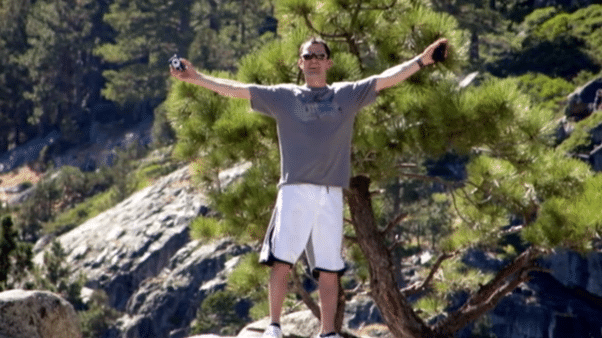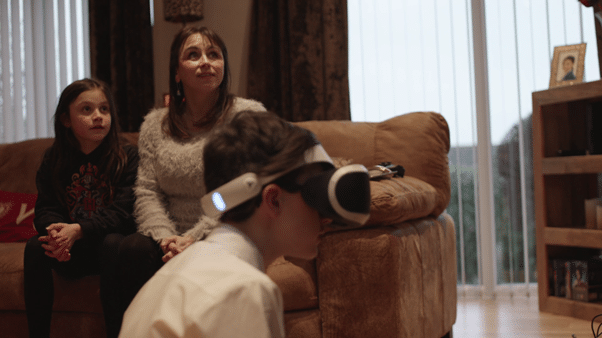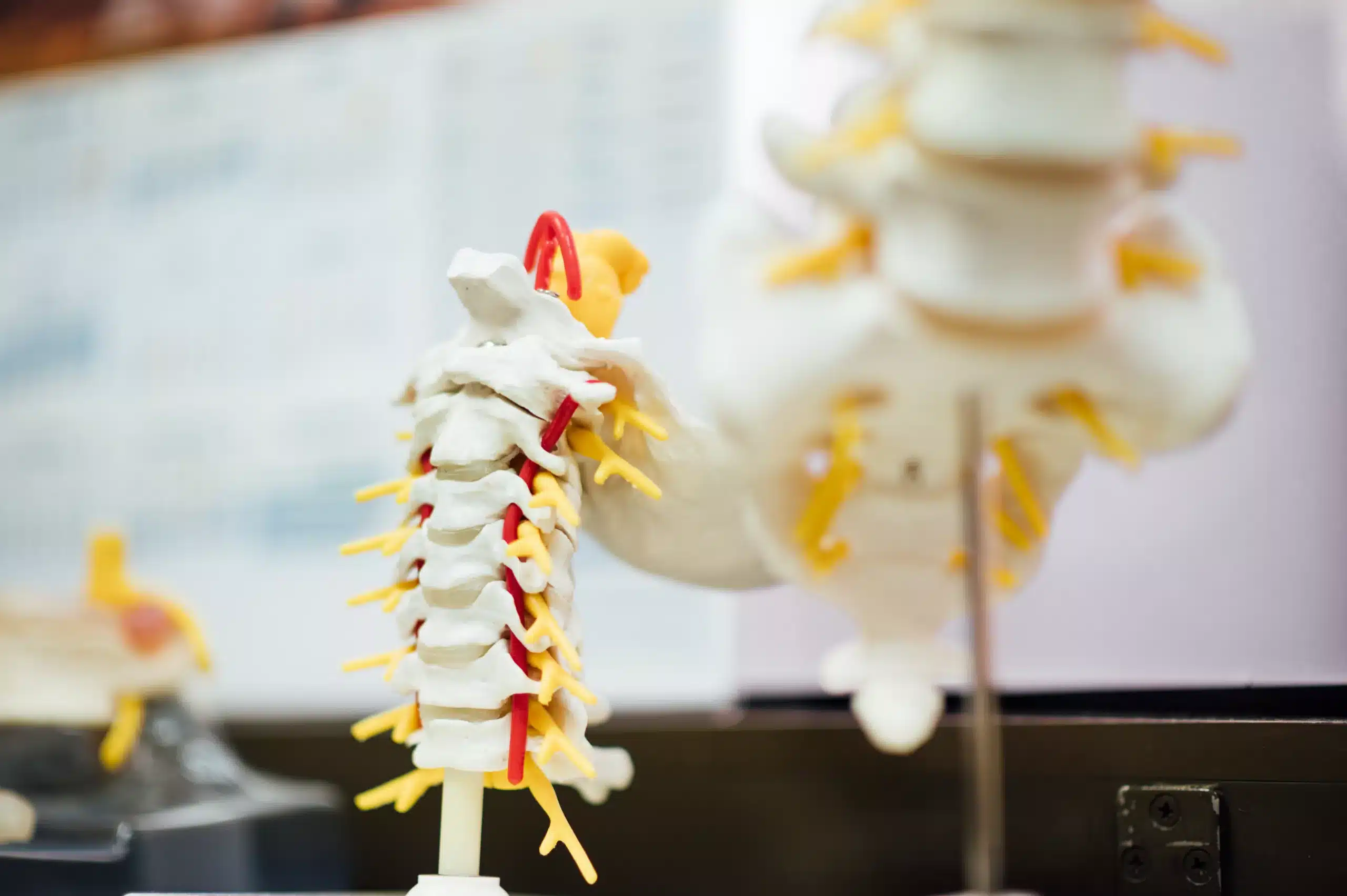
 " alt="">
" alt="">
Cauda Equina Claims

Reviewed by
Peter Rigby - Managing Director of Medical Negligence | Last updated on: 18th November, 2025
We've got your Cauda Equina Negligence Claim covered
- No win No fee
- Not just lawyers - real specialists
- No obligation
- UK's highest-rated medical negligence solicitors
Cauda Equina is a medical emergency and should be treated as quickly as possible. Any failings in diagnosis, treatment or care can be serious, with devastating consequences for victims and their families. You may be entitled to make clauda equina claims if you or a loved one has suffered from clauda equina syndrome that could have been prevented. Our team specialises in cauda equina compensation and can help you understand your legal rights.
Making a Cauda Equina Claim
The consequences of Cauda Equina syndrome can be life-changing. If you are considering a Cauda Equina syndrome claim, contacting a lawyer specialising in this area is important.
At Patient Claim Line, we have a specialist injury team that will take on your case and get the cauda equina compensation and support you need following medical mismanagement of Cauda Equina syndrome. Our medical negligence lawyers have over 30 years of experience and will help you understand:
- If you have a medical negligence case
- How your Cauda Equina diagnosis and treatment were mishandled
- The amount of cauda equina syndrome compensation you could be entitled to
- What compensation can help you with for the future
- How the No Win No Fee Agreement works
Find out if you
have a claim
Take the 10-second claim test
Free Advice
03300 080 352
claim form
We're the highest-rated No Win No Fee medical negligence solicitors on Trustpilot
What is Cauda Equina?
Cauda Equina is a group of nerves at the bottom end of your spine. Cauda Equina Syndrome occurs when these nerves are damaged due to a herniated (slipped) disc, but also by a spinal canal tumour, infection, fracture, or narrowing of the spinal canal. If Cauda Equina has a slow onset, your symptoms may have been dismissed or diagnosed as something else, allowing the condition to get worse. With a rapid onset, speed is key, and treatment should begin as soon as possible. In either case, if your signs or symptoms were misdiagnosed, treatment was delayed, or surgery was not carried out correctly, you could have a cauda equina claim for cauda equina compensation.
What Causes Cauda Equina Syndrome?
The most common Cauda Equina cause is a herniated disc. Other possible causes and red flags for Cauda Equina include:
- Narrowing of the spinal canal
- Lesions on the spine
- Malignant tumours on the spine
- Inflammation or an infection of the spine
- Genetic defects or defects caused during birth
- Inadequate spinal surgery or aftercare
At Patient Claim Line, we have helped many patients whose Cauda Equina occurred as a result of these causes. Healthcare professionals have a duty of care, and any signs and symptoms relating to these issues should be investigated properly to prevent Cauda Equina from advancing.
What Are the Early Signs/Symptoms of Cauda Equina?
Some symptoms of Cauda Equina syndrome are referred to as ‘red flag symptoms’ because they give a clear sign that the Cauda Equina nerves are being decompressed and should be acted on very quickly. Typical symptoms include:
- Severe lower back pain
- Leg weaknesses
- Saddle paraesthesia (a numb sensation between the legs, genitals or buttocks)
- Incontinence (the bladder or the bowel)
- Sexual dysfunction or loss of sexual sensation
Recognising these symptoms early can make all the difference in preventing from developing cauda equina symdrome.
How is Cauda Equina Diagnosed?
The only way to confirm Cauda Equina syndrome is with an MRI scan. Ideally, it needs to be caught within a few hours, followed by surgery to decompress the spine. It is important that GPs and consultants recognise these symptoms promptly to enable timely intervention and reduce the risk of cauda equina claims due to delayed diagnosis.
How is Cauda Equina Treated?
Immediate treatment is critical to prevent long-term damage. The primary treatment for Cauda Equina syndrome is emergency surgery. The goal is to relieve pressure on the spinal cord or nerve roots as quickly as possible, typically through a procedure called decompression surgery, which involves removing the source of pressure, such as a herniated disc or tumour, to restore normal function to the affected nerves.
In addition to surgery, patients may require pain management, physical therapy and rehabilitation to recover strength, mobility and bladder/bowel control. The rehabilitation process can vary depending on the severity of the damage and how quickly treatment was initiated.
What Happens if it is Not Treated?
If Cauda Equina syndrome is not treated urgently, it can lead to permanent nerve damage. The longer the pressure on the nerves remains untreated, the greater the risk of irreversible consequences. Possible long-term effects of untreated Cauda Equina syndrome include:
- Permanent loss of sensation in the legs and lower body.
- Chronic pain that may become difficult to manage.
- Incontinence or permanent bladder and bowel dysfunction.
- Paralysis in the lower extremities makes it difficult or impossible to walk.
- Sexual dysfunction that may become a permanent issue.
If Cauda Equina Syndrome isn’t treated quickly, it can cause permanent damage and could result in a successful claim where medical care was negligent.
Is Cauda Equina a Permanent Disability?
The level of disability varies greatly from person to person and depends on the severity of nerve damage and how quickly medical intervention is received. Cauda Equina syndrome can result in permanent disability, especially if treatment is delayed. While emergency surgery can often relieve some symptoms, the extent of recovery largely depends on how soon the condition is diagnosed and treated.
Common Reasons For Making a Cauda Equina Claim?
Cauda Equina is a serious condition that requires immediate medical attention. Unfortunately, many patients experience delays or substandard care due to Cauda Equina negligence. Here are the most common reasons for making a Cauda Equina claim:
Lack of Awareness in Hospitals
Medical staff may not always recognise the symptoms of Cauda Equina syndrome or understand the urgency of treatment. Smaller hospitals in particular may face resource limitations, which can result in delays in diagnosis or referral to specialist units.
Delayed MRI or CT Scans
In many cases, Cauda Equina patients experience delays in receiving essential diagnostic imaging, such as MRI or CT scans. These delays can range from days to even weeks, and by the time the diagnosis is made, the damage may be irreversible.
Misdiagnosis by GPs
While general practitioners are typically aware of Cauda Equina syndrome, there are instances where they misdiagnose the condition or fail to urgently refer patients for the necessary scans.
Negligent Surgery
When surgery is necessary, negligent surgical procedures can worsen the patient’s condition. Poorly executed surgery or delays in performing the required operation can lead to further complications, permanent damage and the need for additional surgeries, which carry their risks and potential for long-term injury.
If any of these failings occurred, you may have a right to make a cauda equina syndrome claim for compensation.
How do I know if I have a Cauda Equina Compensation Claim?
If you or a loved one has suffered from Cauda Equina syndrome due to medical negligence, you may be entitled to compensation. To determine if you have a valid cauda equina compensation claim, you must be able to show that the medical professionals involved in your care did not meet an acceptable standard of treatment and that their negligent actions led directly to the development of your Cauda Equina syndrome.
How do I Make a Claim?
We have helped hundreds of people claim compensation for Cauda Equina negligence. You can make a claim if any of the following occurred at any point during your Cauda Equina diagnosis or surgery:
- Misdiagnosis of ‘red flag’ symptoms leading to the avoidable progression of the syndrome
- Inadequate surgery leading to permanent damage and ongoing operations
- Failure to even receive decompression surgery
- Delayed treatment, e.g. delayed MRI scans.
Cauda Equina patients can suffer from life-limiting disabilities, such as incontinence or permanent pain, even if the medical treatment is good. As this condition is so serious, delayed or negligent treatment means that you could be entitled to claim compensation.
How Much Compensation Can I Get?
The payout you receive will depend on the impact on your daily life. Compensation is most often awarded for:
- Changes to your home to help with loss of mobility
- Additional household aids
- Cost of care, e.g. if you are no longer able to carry out tasks like shopping or housework
- Loss of earnings if you can no longer work
- Physical therapy to aid recovery
- Sexual dysfunction and the effects of this on your life and well-being
- Emotional distress and suffering
Why Choose Patient Claim Line for your Cauda Equina Negligence Claim?
Patient Claim Line has over 100 expert medical negligence lawyers based throughout the UK. We have the expertise and resources of an established company, but the compassion, care and friendliness of a local solicitor. We have helped thousands of patients make claims for negligent medical care and pursued compensation for those whose lives have changed because Cauda Equina syndrome was not caught or operated on early enough. We investigate every aspect of your claim to get you the maximum amount possible.
No Win No Fee Cauda Equina claims
Your initial consultation is completely free, and there is no obligation to use Patient Claim Line for your claim. If you do decide to go ahead with your Cauda Equina negligence claim, it will be completely No Win No Fee, so you don’t pay a penny upfront. Facing life after Cauda Equina can be a very difficult time for you and your loved ones. We do everything we can to make claiming compensation as stress-free as possible, and unless we win, you don’t have to pay a thing.
Frequently asked questions about Cauda Equina Negligence Claims
Our expert legal team answer your questions about making a Cauda Equina Negligence Claim
To start your Cauda Equina claim, you will need to establish that what happened to you directly caused any negative effects. Expert medical negligence lawyers can help guide you through the process and tell you if you have grounds to make a claim. If you do, they will then take care of the whole claim for you, occasionally asking for information and evidence that will support your claim. If the other party admits liability you will not need to go to court and will be offered a final compensation settlement which both parties agree to.
An individual who has suffered from Cauda Equina syndrome, and experienced symptoms that were avoidable is able to make a claim. You are also able to make a claim on behalf of a loved one, if they are under 18 years of age, or if they lack the mental capacity to make the claim themselves.
Even if you do recover well from Cauda Equina syndrome, it can sometimes take several years for full function to return. If you do make a recovery, but still experienced medical negligence when suffering from Cauda Equina, such as having to undergo multiple operations after initial surgery went wrong, then you may still have grounds for a cauda equina compensation claim.
A claim for medical negligence generally must be made within three years from the date you became aware that you suffered from Cauda Equina syndrome through the negligence of a medical professional or institution. This is known as the “date of knowledge”.
There are certain exceptions to this time limit which are important to discuss with a legal advisor. For example, the time limit for claims relating to children under the age of 18 runs three years from their 18th birthday. This means that they would have until their 21st birthday to make a claim.
If the person affected does not have the mental capacity to proceed with a claim or recognise that they have suffered medical negligence, there can be no time limit unless the individual regains capacity.
Meet our Cauda Equina Negligence Team
Case Study
Sarah's Story
"Now we have peace of mind"
My husband, Nick, went back and forth to the doctors for a long time and tried everything the doctor recommended. But his illness got worse, to the point that he was in agony.
In the end we got so desperate that we asked for a referral. The doctor was reluctant, so we had to consult a private hospital. That’s when we found out there was a tumour. It took years from the onset of his illness to finally start cancer treatment.


He used to be a man with a lot to live for, but in the end he was in so much pain that he withdrew from the family. He became angry that nobody had helped him sooner, and the legal team were able to give him the validation that he was desperately seeking. The NHS confirmed if they had done more, Nick would still be alive today.





